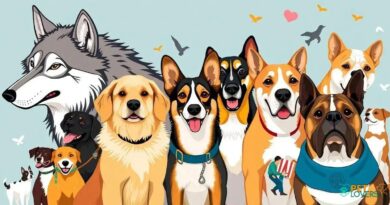What is Kara
What is Kara?
Kara is a term that has gained popularity in the canine community, often referring to a specific breed or a unique training method. Understanding what Kara means can enhance your knowledge about dog care and training, making it a valuable addition to any dog owner’s vocabulary. This term encapsulates various aspects of dog behavior, training techniques, and breed characteristics that are essential for fostering a healthy relationship between dogs and their owners.
The Origin of the Term Kara
The origin of the term Kara can be traced back to specific cultural contexts where dogs play a significant role in daily life. In some cultures, Kara is associated with loyalty and companionship, reflecting the deep bond that exists between humans and their canine friends. This historical perspective adds depth to the understanding of what Kara represents in the modern dog training and ownership landscape.
Kara in Dog Training
In the realm of dog training, Kara often refers to a method that emphasizes positive reinforcement and understanding canine psychology. This approach encourages owners to build trust and communication with their dogs, leading to more effective training outcomes. By incorporating Kara techniques, dog owners can create a more harmonious environment that fosters learning and growth for their pets.
Understanding Kara Breeds
When discussing what Kara means in relation to dog breeds, it often highlights specific characteristics that define certain breeds. For instance, some breeds may exhibit traits associated with the term Kara, such as loyalty, intelligence, and a strong desire to please their owners. Recognizing these traits can help potential dog owners make informed decisions when selecting a breed that aligns with their lifestyle and preferences.
Kara and Canine Behavior
Understanding Kara also involves delving into canine behavior. Dogs that embody the essence of Kara are often seen as more adaptable and responsive to training. This adaptability is crucial for owners who wish to cultivate a well-behaved pet. By recognizing the behavioral traits associated with Kara, owners can tailor their training methods to suit their dog’s unique personality.
The Role of Kara in Dog Socialization
Kara plays a significant role in the socialization of dogs. Dogs that are socialized using Kara principles tend to exhibit better behavior around other animals and humans. This socialization process is essential for developing a well-rounded dog that can thrive in various environments, from busy parks to quiet homes. Understanding the importance of Kara in socialization can lead to more confident and well-adjusted pets.
Kara and Health Considerations
Health is another critical aspect of what Kara encompasses. Dogs that are trained and socialized according to Kara principles often exhibit fewer behavioral issues, which can lead to a healthier lifestyle overall. Additionally, understanding the health needs of specific breeds associated with Kara can help owners provide the best care possible, ensuring their pets live long, happy lives.
Kara in Dog Ownership
For dog owners, embracing the concept of Kara means committing to a philosophy of care that prioritizes the well-being of their pets. This commitment involves ongoing education about training methods, breed characteristics, and health considerations. By adopting the principles of Kara, owners can foster a deeper connection with their dogs, enhancing the overall experience of pet ownership.
The Future of Kara in the Canine Community
As the canine community continues to evolve, the significance of Kara is likely to grow. New training techniques, breed developments, and health insights will further shape what Kara means for dog owners and trainers alike. Staying informed about these changes will ensure that the principles of Kara remain relevant and beneficial for future generations of dog lovers.



